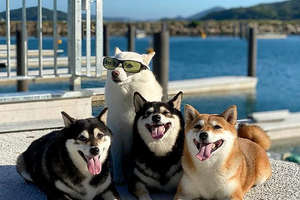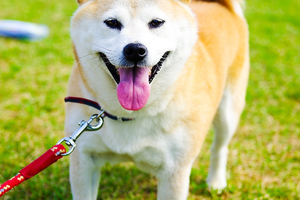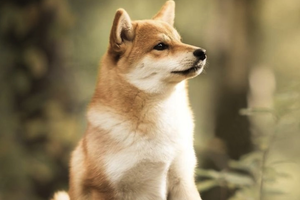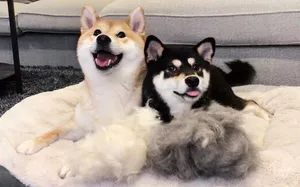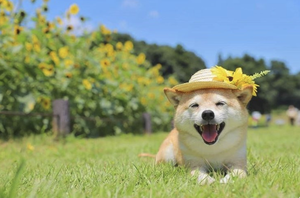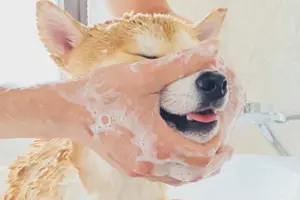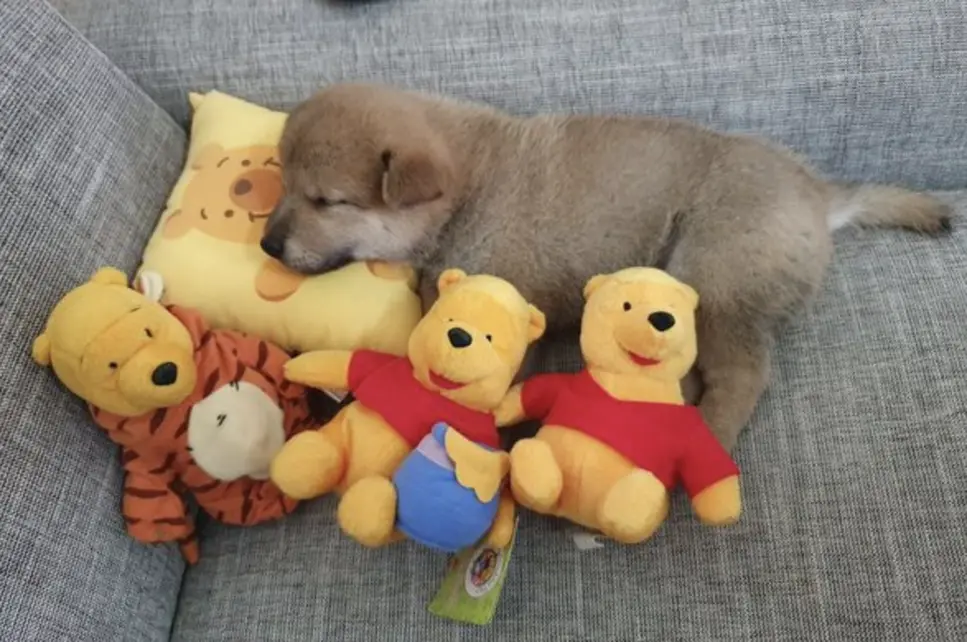
## Understanding Shiba Inu Puppy Biting
Shiba Inu puppies have a natural instinct to bite and chew, as it is part of their development and teething process. However, if not addressed, this behavior can become a persistent issue and lead to aggression in adulthood.
It is important to understand that Shiba Inu puppies may bite for various reasons, such as teething discomfort, boredom, or lack of socialization. By understanding why your puppy is biting, you can address the behavior and prevent it from becoming a problem.
It is also essential to recognize that Shiba Inu puppies have a strong personality and can be stubborn. This means that training them to stop biting requires patience, consistency, and positive reinforcement. By understanding your puppy’s behavior and personality, you can train them effectively and prevent biting behavior from persisting into adulthood.
The Importance of Early Training
Early training is crucial in preventing persistent biting behavior in Shiba Inu puppies. It is recommended to start training your puppy as soon as you bring them home, ideally between 8 to 12 weeks of age.
During the early stages of training, you should focus on socialization and basic commands such as “sit,” “stay,” and “come.” This helps your puppy develop good behavior habits and prevents unwanted behaviors such as biting.
Early training also helps establish a bond between you and your puppy, which is essential for effective training. By spending quality time with your puppy and training them consistently, you can create a strong bond and prevent biting behavior from becoming a problem.
Overall, early training is essential in preventing biting behavior and establishing a positive relationship with your Shiba Inu puppy. By starting early and training consistently, you can raise a well-behaved and happy puppy.
Redirecting Biting Behavior
Redirecting your Shiba Inu puppy’s biting behavior is an effective way to prevent them from biting you or others. One way to redirect their biting behavior is to provide appropriate toys and objects for them to chew on.
When your puppy starts to bite you or others, immediately redirect their attention to a chew toy or bone. This teaches them that biting is appropriate on certain items but not on people or other objects.
It is important to provide a variety of chew toys and objects to prevent your puppy from getting bored and seeking out other items to bite. You can also freeze toys or bones to provide relief for your puppy’s teething discomfort.
Overall, redirecting your Shiba Inu puppy’s biting behavior is an effective way to prevent them from biting you or others. By providing appropriate chew toys and objects, you can teach your puppy appropriate biting behavior and prevent unwanted biting behavior from persisting.
Discouraging Biting Behavior
Discouraging biting behavior is an important aspect of training your Shiba Inu puppy. One way to discourage biting behavior is to yelp or make a high-pitched noise when your puppy bites you. This mimics the behavior of puppies in a litter, who use vocal cues to communicate when their biting becomes too rough.
Another way to discourage biting behavior is to withdraw attention when your puppy bites you. This teaches your puppy that biting behavior results in a loss of attention or playtime.
It is important to avoid physical punishment when discouraging biting behavior, as this can lead to fear and aggression in your puppy. Instead, focus on positive reinforcement training and consistent training methods.
Overall, discouraging biting behavior is an important part of training your Shiba Inu puppy. By using positive reinforcement and consistent training methods, you can teach your puppy appropriate biting behavior and prevent unwanted biting behavior from persisting.
Positive Reinforcement Training
Positive reinforcement training is a great way to train your Shiba Inu puppy and prevent biting behavior. This type of training focuses on rewarding good behavior instead of punishing bad behavior.
When your puppy exhibits appropriate biting behavior, such as chewing on a toy instead of biting you, reward them with praise, treats, or playtime. This teaches your puppy that good behavior results in positive outcomes, which encourages them to continue exhibiting good behavior.
Positive reinforcement training can also include clicker training, where you use a clicker or other sound to mark good behavior and reward your puppy accordingly.
Overall, positive reinforcement training is a great way to discourage biting behavior and train your Shiba Inu puppy effectively. By rewarding good behavior and using consistent training methods, you can raise a well-behaved and happy puppy.
Consistency in Training
Consistency in training is vital in preventing biting behavior in Shiba Inu puppies. It is important to establish clear rules and boundaries for your puppy and to consistently enforce them.
Consistent training methods include using the same commands and rewards, avoiding physical punishment, and providing regular exercise and playtime.
It is also important to involve all members of your household in your puppy’s training. This ensures that your puppy receives consistent training and avoids confusion or conflicting training methods.
Consistency in training also includes being patient and persistent. It takes time and effort to train a Shiba Inu puppy, and it is important to remain consistent and positive throughout the training process.
Overall, consistency in training is essential in preventing biting behavior and raising a well-behaved Shiba Inu puppy. By using consistent training methods and being patient and persistent, you can train your puppy effectively and prevent unwanted biting behavior from persisting.
Patience and Persistence
Training your Shiba Inu puppy to stop biting takes patience and persistence. It is important to remember that biting behavior is a natural part of their development, and it may take time and effort to correct the behavior.
It is important to remain calm and patient when training your puppy. Avoid reacting negatively to their biting behavior, as this can reinforce the behavior and make it more difficult to correct.
Persistence is also vital in training your Shiba Inu puppy. Consistent training methods and regular exercise and playtime are important in preventing biting behavior from persisting.
It is also important to be flexible in your training methods and to adjust them as needed. Every puppy is different and may require different training methods to correct biting behavior.
Overall, patience and persistence are essential in training your Shiba Inu puppy to stop biting. By remaining calm and consistent in your training methods, you can raise a well-behaved and happy puppy.
When to Seek Professional Help
In some cases, professional help may be necessary to address persistent biting behavior in Shiba Inu puppies. If your puppy continues to exhibit biting behavior despite consistent training methods and positive reinforcement, it may be time to seek professional help.
Professional help can come in the form of a certified dog trainer or a behaviorist. They can provide personalized training methods and advice tailored to your puppy’s specific needs.
It is important to research and choose a qualified and experienced professional to work with your puppy. They can provide guidance on how to address biting behavior and prevent it from becoming an ongoing issue.
Overall, seeking professional help is a viable option for addressing persistent biting behavior in Shiba Inu puppies. By working with a qualified professional, you can receive personalized training methods and advice to train your puppy effectively and prevent unwanted biting behavior from persisting.

